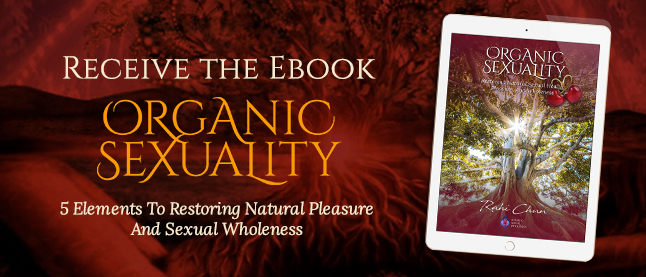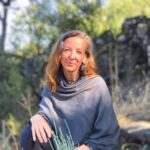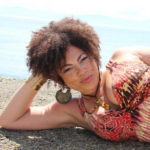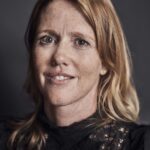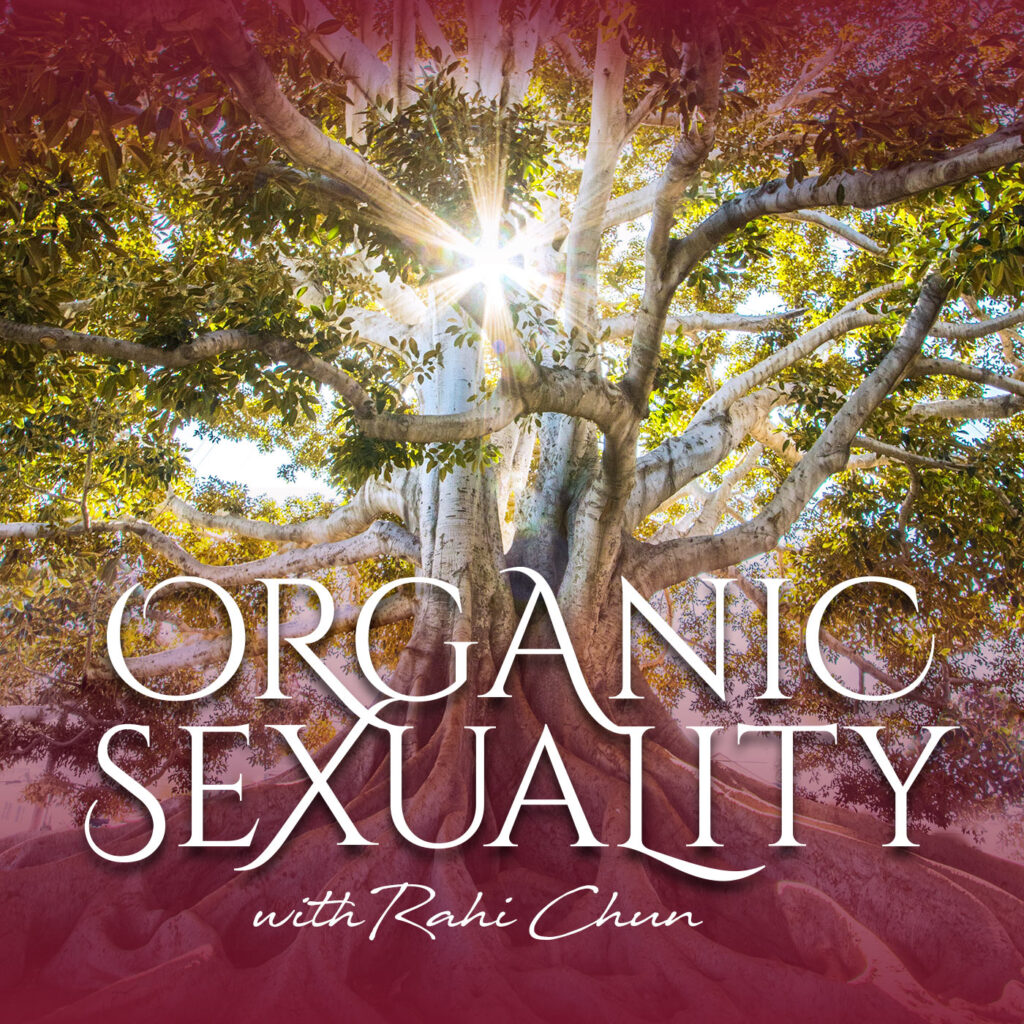
How Goddess Amina Supports the Restoration and Reclamation of Erotic Pleasure & Power for Black Women and Men
Share this episode:
I had been aware of Goddess Amina and the Atlanta Institute of Tantra for some time, but what brought her work to my attention was her Divine Portal Yoni Oracle Deck & Guidebook – a magnificent oracle deck celebrating and honoring the wide variety of exquisite and beautiful black and brown vulvas with celebrated correlations to elements, qualities, rituals and stones. A dear friend of Amina’s, Kimberly, had participated in one of my live Genital Dearmouring trainings, and filled me in on the magnificence of Goddess Amina and the sacred spaces she’s created for Black women and the safe and sacred exploration and reclamation of embodied pleasure. Since then, we’ve been collaborating on a 3 Keys to Genital Dearmouring training for her practitioners and holding space for what else wants to come forward from our alignment and shared values in this sacred work.

The Atlanta Institute of Tantra: AtlTantra.org
Goddess Amina Peterson is a force of nature, a sexual revolutionary, and erotic abolitionist. She holds a sacred space for our natural and authentic sexual embodiment to be remembered, reclaimed, and honored in a variety of spaces. Some of the experiences that have informed her journey have included serving as a somatic healer, trained in Somatic Experiencing, Reiki and Yoga, as well as serving as a birth doula, sexual surrogate, personal trainer and sex coach.
She founded the Atlanta Institute of Tantra in 2017 which has become the premier institute for training, certifying, and providing resources to Sexologists, Sacred Sex Workers, Sex Doulas, Cuddle Professionals and Bodyworkers who specialize in Somatic Sexology – a spiritual embodiment organization and community that centers on Black women and their pleasure. Amina and the Institute also trains and certifies Somatic Sexologists, hosts multi-day Bliss retreats and works with clients 1:1 virtually and in person in Panama City and Atlanta.
We explore:
How receiving a non-erotic Esalen-style massage when Amina owned a coffee cafe in Chicago in 2004, felt like being made love to and changed her life – inspiring her body to want to heal people with her hands, and within 10 days, asked for a divorce, closed her cafe, and enrolled in massage school.
How Amina wanted to make her clients feel how she felt receiving that massage – waking up the erotic intelligence of the body and how it wants to be touched and showing that this is possible through one’s hands.
How Dr. Reggie Ray’s “somatic descent” practice – a deep diving meditation of traversing the body from a place of inquiry and presence lead to navigating a new relationship with her body and understanding what is a true yes and “authentic consent.”
How there are infinitely vast terrains to feel within the vaginal canal, or between the toes and how inviting a level of playfulness and curiosity supports deepening this intimate awareness with our selves.
How once belonging is no longer an issue – within one’s self, in relationship, or within a group space, how real consent can feel and look very different for the body.
How historical societal structures of patriarchy and racism are such that unless you are consciously anti-racist, you can unconsciously be affirming the racist norms that are in existence and the ways this affects particularly women of color in sacred sexuality circles.
How sacred sexuality practitioners who are not familiar with the racialized experiences of Black women can start creating safer, more inclusive spaces by co-creating with partners who have the lived experiences of knowing the sensitivities and offenses to the nervous system this can bring, especially in such vulnerable and trust-required spaces involving sexual embodiment and well-being.
How models of vulvas, breasts, lingams, and bodies are largely reflective of the white majority and how this affects the developing minds and self-identities of black or brown people who look different from the white majority.
How many sacred sexuality teachings and spaces often miss the essential foundations of feeling embodied safety, learning how to down-regulate the nervous system, and nurturing a sense of belonging – a core need of our human species – before jumping into sexual “techniques” and result-oriented practices.
Rahi: Welcome to Organic Sexuality where we explore the restoration of pleasure, the reclamation of sexual sovereignty, and the realization of our embodied sexual nature. An invitation to honor the pleasures of your body by embodying the pleasures of your nature. I'm your host, Rahi Chun. I'm a certified somatic sex educator, a sexological bodyworker and creator of somatic sexual Wholeness.
Rahi: Before today's interview, an announcement that registration for the three keys to genital disarming for reclaiming and expanding pleasure. 2025 is now open. For all details about the course content and super early bird rates, go to somaticsexualwholeness.mykajabi.com. In today's interview with Amina Peterson, we explore questions about spaces exploring the sacredness of sexuality. How is it possible to attune to the authentic consent of the body before developing an intimate connection with our body parts? How can a space be sacred to sexuality if it is not familiar with the ethnic or sociocultural experiences of the sexual beings inhabiting the space?
Rahi: And since safety and belonging is central to the nervous system's, openness and receptivity to pleasure, how safe are tantric and sacred sexuality circles when the space holders are unfamiliar with the racialized experiences of the bodies participating in the spaces they are facilitating? I am so excited to invite Goddess Amina Peterson to the podcast today. Um, I've been following Amina for a couple of years, and it was very fortuitous that I had someone in a recent training who's a dear friend of Amina's, and Kimberly linked this up, and we've been communicating since then and, um, working towards collaborating, and I'm very, very excited to have her on the podcast today. So, goddess Amina Peterson is a force of nature, a sexual revolutionary and erotic abolitionist. I've never heard that term before. I love it. Um, she holds sacred space for our natural and authentic sexual embodiment to be remembered, reclaimed, and honored in a variety of space.
Rahi: Some of the experiences that have informed her journey have included serving as a somatic healer, trained in somatic experiencing reiki and yoga, as well as serving as a birth doula, sexual surrogate personal trainer and sex coach. She founded The Atlanta Institute of Tantra in 2017, which has become the premier institute for training, certifying and providing resources to sexologists sacred sex workers, sex doulas, cuddle professionals and body workers who specialize in somatic sexology. It's become a spiritual embodiment organization and community that centers on black women and their pleasure. Amina in the institute also trains and certifies somatics. Sexologists hosts multi-Day bliss retreats and works with clients one-on-one virtually, and in person in Panama City and in Atlanta, as well as mentoring professional Sexologists Goddess Amina, thank you for joining us today. It's great to see you.
Amina: Thank you for having me. It's, it's great to be here. I'm looking forward to this conversation.
Rahi: Awesome. Me too. So, um, Amina, I usually start off many interviews by asking about the pivotal experiences that have informed guests with what they're doing now. And you have such a, like, varied and, um, diverse, uh, like influences of experiences having been a birth doula, a sexual surrogate, a personal trainer. But I read in a medium, um, article that you received an Esalen-style massage in 2004 that seemed to have really changed your life and lead you to working with sexual embodiment. Um, I'd love to know what was that experience that seemed to have, like, influenced your trajectory?
Amina: Yeah. Uh, it's interesting. I often, I wish I could find the woman that that was, that whose hands were on my body. It was a time in my life where things were, I was young and I was, uh, a go-getter,
Amina: And I was sleep deprived. I was in a marriage that was reflective of lack of sleep, lack of connection, lack of intimacy. Um, and I was just really, really burning both ends of the candle. And I decided to, uh, coming up on my one year anniversary of opening the cafe to have a a get together with some of my girlfriends. And I hired, I brought in a massage therapist. I brought in, um, a like pedicure, a facial, all these people to come in and just kind of pamper us and everybody could just, you know, book their sessions as they wanted when they got there. My only rule was that I was going first for the massage, and I got on that table, and that woman changed my entire life. Um, the style of touch that she offered was a blend between, uh, some like lomi-lomi but really nurturing and almost like a hug. Mm. Uh, and that the ollin technique was just really, uh, it felt like I was being made love to in a way that I had never been made love to before in a way that didn't involve, um, any erotic Mm-Hmm.
Rahi:
Amina: But this, the massage really made me realize that I wanted to make people feel the way that I felt in that moment. Mm-Hmm. And I just remember crying after this session and not like, being really confused about everything, what path I was on, what journey I had taken, what marriage I was in. Um, Mm-Hmm.
Rahi: Yes. I know. As a fellow Aquarion. I know, I know
Amina: Right? Yeah. It shifted so much of just like how I understood my body Mm-Hmm.
Rahi: Yes. Yes. That's the other great thing is it does, like, you know, people really over overfocus on the genitalia and associate sexuality with the genitalia, the skin is like the biggest sex organ. Yes. And you know, just what you shared Amina about, like not knowing what quality of touch that your body wanted until it received it. Mm-Hmm.
Amina: Yeah. Yeah. And it, it did, it did just that, it woke, it woke me up in a way that I, but nothing I was doing, I could continue. Like I've never been so sure about anything in my life except that I was on the wrong path in every way at that moment. And, um, and then that changed.
Rahi: That's amazing.
Amina: Yeah. I went to massage school and I had worked previously as a sex surrogate, not for a very long time. I'd worked under Dr. Dean Dowell in Chicago. And, um, I worked for a little under a year. So I had already been awakened and exposed to the reality that sex work was something beyond survival sex work, which is all I had witnessed up until that point was sex work as street walker. Mm-Hmm.
Rahi: Yeah, yeah.
Amina: Yeah. And that's what led me to even find the word tantra, because up until that moment, I had never heard the word tantra. Mm-Hmm.
Rahi: This is so awesome. I, I, I want to explore some of those rabbit holes, but specifically like, you know, Amina, I feel, feel like the, the, the sanctuary you've created with the institute, the Atlanta Institute of Tantra, specifically as a sanctuary to cultivate and, and, and have a safe space for black women to explore their pleasure, their embodiment, you know, their desires is such a unique haven. Um, I'd love to know, what were some of those, like most influential rabbit holes, you know, since massage school that made you specifically envision the Atlanta Institute of Tantra for black women to really be, feel safe in really embodying all of who they are?
Amina: Yeah. So there were a few, um, one of the rabbit holes that was probably the biggest and has been the most influential was, um, some just learning about what somatics was like. Just the Mm-Hmm.
Amina: Hmm. Um, and so that rabbit hole really, really, really shifted things. It also changed my understanding 'cause I was looking for tantra. That's how I ran up on Reggie Ray. Uh, he wrote a book called Tantra, and I was like, oh, he is a tantric llama, let me study on
Rahi: Well, no, I, I wanted, because, uh, like I'm not familiar with Reggie's work, and maybe some of our audience members aren't either. So, like, by this time, I understand that you had completed your massage school training, so you understand the anatomy. You, you kind of natural, you know, it sounds like your touch just became very innate, natural. What was it about, um, what you discovered studying with Reggie and, and his approach to Tantra that, um, like built new layers of understanding of, you know, uh, embodiment?
Amina: Yeah. It's, the biggest thing was like, it was, there was no focus on sex at all. So I, like, there was one part of me that was, that was, I'm in the wrong classroom. Where am I at? Mm-Hmm. What's happening here? And but then, because that wasn't the focus, it was just the focus on the entire body. And really, um, one of the lessons was about just diving deep in, there's a practice called somatic descent, and you can Google this. Um, Reggie Ray is, I think it's, it's also on audible with Sounds True, or you can go to Sounds True and, and find, find his work there. But the somatic descent is a meditation that takes place, um, where you just, you literally go into the body, you go behind all of the story, and you just work to drop into the body. And in that space, you get to ask your body questions.
Amina: Mm-Hmm.
Amina: It is So, you know, from the tips of your toes, uh, there was one practice where we just had to find like the space in between our big toe and our little toe, our second toe. And just like, feel into that space. Like such, such very specific things that allowed me to realize like just how much I, you know, had been dissociating from my body. Mm-Hmm.
Rahi: Yeah. Right.
Amina: Totally. And yeah, so it has left me with this space to play and explore, um, how to articulate Mm-Hmm. All of this beautiful somatic theory from Strozzi, from Peter Levine and from, you know, uh, Stacy Haynes and folks like that. And then like, bring it into this erotic space. Mm-Hmm.
Rahi: Yeah. Absolutely. Like, um, I mean, when you really look at tantra and its purity, it's the art of presence Mm-Hmm. And being present. Mm-Hmm.
Amina: Exactly. Exactly. And it's, it's interesting 'cause I think about like, the work I do with the vaginal canal, and like, how many of us just kind of think, oh, it's just a thing that's there. Not realize like, well, there's these muscles in the front and there's these muscles at in the back and on the right and the left are different muscles. Mm-Hmm.
Rahi: Yeah. That's so beautiful. It's like being children. I get, it's like, it, you know, when I do my intakes with clients, I always ask about their first, um, introduction to their sexuality. And, you know, oftentimes it's, you know, playing with the teddy bear or the shower head or, you know, and it's kind of like re like reintroducing us to that playfulness as children, you know? Yeah. That gets like stomped or shamed or whatever. Um, yeah. But something that's so important, Amina, that you, you, you, you touched on is, it sounds like really authentic consent for you comes from being that intimate with your body sensations and being able to attune to what it is that your body's experiencing.
Amina: Right? Yeah, that's exactly it for me, because I think for a lot of my, a good chunk of my life consent was really rooted in what I thought I was supposed to do.
Amina: Like what I thought was the best option, according to whoever is measuring best
Rahi: Right. Right. That is such a huge point, because once one, once a a, a nervous system feels that safety and security, I believe it's only then that they can really attune to what's authentic in the body. It
Amina: Absolutely, absolutely. Mm-Hmm.
Rahi:
Amina: Yeah. Reggie Ray was a big one.
Rahi: Yeah. And then along your journey, what were the other kind of inspiring or influential experiences that made you really like create this vision for a sanctuary for black women and their pleasure?
Amina: Yeah. One
Amina: Um, and sacred sexuality. I'm trying to expose myself. And every single one that I go to, I am at that time the youngest and the absolute darkest person in the room. It seemed like it was something that was not accessible to me or anybody that I knew. I could hear my family, I could hear my friends saying, I'm not going to that white people stuff. That's for you. Mm-Hmm.
Amina: Mm-Hmm.
Amina: Like, I couldn't invite my friends and be like, y'all should come to this thing with me. Because it just, there were little things, little microaggressions. Mm-Hmm.
Amina: And in the process. Yeah. And so eventually I started hosting my own little workshops Mm-Hmm.
Rahi: It blew up. It blew up. Yeah. Yeah. Well, um, you know, it goes back to what we were saying, that unless the nervous system really feels safe and met and attuned to Mm-Hmm.
Amina: Exactly. Exactly. Mm-Hmm.
Rahi: Well, let's talk about that. So when you say it exploded, like the demand, you know, you went from like your first gathering of three people to 30 people, and then like, like thinking back now to when you landed in Atlanta and started holding sacred, sacred space for, for, for the black community. Like, when did you realize, oh man, this isn't just a river, it's like a tidal wave of, of pent up demand.
Amina: Right? Yeah. It was really quickly actually, because I was not planning on staying in Atlanta.
Rahi: Oh, wow.
Amina: I was, it's, you know, time we're, we're back here again. But this was, I was on the plane to Seattle Uhhuh
Amina: Now I have chatted out these three months in Atlanta, and I, I thought, well, okay, I guess I'll, if I'm gonna be here, then I'll, I'll get a little office in town and I see. And start seeing people. And I was fully booked every day for, um, yeah. For the, for the whole three months I was fully booked. It was, was no break. And then I'm, I'm doing the events and people are just pouring into the events. This is the first three months where I said, okay, Costa Rica can wait. Uhhuh,
Amina: And, uh, about six months in, he said to me one night, he said, I just, I want you to teach me how to be as free as you are. Mm-Hmm.
Amina: And, you know, reaching out to, to mentors and friends who develop curriculum and asking for their help and support. And in, um, yeah. In that fall of, of 2017, I launched the institute with the first class, which was just, uh, was called Conscious Erotic Touch, and now it's called Eero Somatic Touch. Uh, we rebranded, uh, earlier this year. Mm-Hmm.
Rahi: Yeah. Yeah. Seven, eight years. Yeah. Wow.
Amina: Seven, eight years later. I know.
Rahi: Totally. Yeah.
Amina: Yeah. And so now things are a little more, a lot more structured, and we're accredited and we have, you know, um, we're now working on global accreditation and things like that. So Yeah. So, but it started off with, with just a very loving request. And I had never, I hadn't been thinking about, I hadn't, I wasn't seeing myself as a teacher. Mm-Hmm.
Rahi: Of course,
Amina: Of course. But I didn't feel like I was teacher. Yeah. I felt like I was, you know, leading a yoga practice, but it was just, you know, sexy play.
Rahi: Right, right.
Amina: And, um, and yeah, that, that, that gentle request just really
Rahi: Yeah. Started a revolution.
Amina: Yeah.
Rahi: Um, you know, what I love Amina is it feels like it was a very organic process, because here for 20 years, you've been holding space. You know, it's not like it came from like an intellectual, like from books, it came from your life, intuitive, embodied, somatic experience. Right. Of what you worked over these, you know, two decades Mm-Hmm.
Amina: Yeah. And I, that's what I realized also was really challenging about teaching Right. Is that I had been in, you know, extreme Aquarius mode where things were flowing and fitting and molding and, and developing. And I would look around and say, that needs to be moved, or that needs to be changed. And, and, and what was created was just powerful, beautiful, um, exploration. And, and I could witness the way that it was impacting folks every day, and that was like fueling my, my fire. Yeah. And then to try and like encapsulate that into a program that now requires some structure Right. Has, has been probably one of my greatest life challenges.
Rahi: I'm sure. I'm sure.
Amina:
Rahi: As an aquar. I totally understand. Yeah.
Amina: Yeah. So yeah, the, I'm used to like this organic flow of things. Mm-Hmm.
Rahi: Of course.
Amina: And if I can't slow down in this space, and it feels just like what they're used to. Right. And that doesn't feel good.
Rahi: Yeah. Yeah. Yeah. What you're, what you're sharing is really profound because we have to walk or talk and we have to, um, demonstrate really by example. Right. You know, the benefits of slowing down and allowing the nervous system to really feel settled and down, regulate and feel itself and, you know, allow emotion to come forward when it wants to, and, and sensations to come forward when, when there's space for it. Mm-Hmm.
Amina: Um, and to notice when there's no space. And I think for me, that's been a big part of my work for myself is just like noticing there's no space for emotion. That I'm too busy, that I'm moving too fast. Mm-Hmm. That I'm, I'm placing unreasonable demands on my own self Yeah. And, and have left no space for emotional experience.
Rahi: Yeah. And, you know, running an institute and the retreats and, you know, having your clients, you've, you have to really, uh, you know, kind of assert boundaries. Mm-Hmm.
Amina: Yeah.
Rahi: It's great. You're, you have to do that to allow for that spaciousness.
Amina: Yeah, you do. You really do. Because it'll blow right past you. And I'm, you know, I'm, I've, it's, there's also like this chunk of me moving from, uh, relationship anarchist, solo, poly to really what feels like, I, I wanna say it's still anarchy, but it's still, you know, we're, we're, we're nesting partners. And so there's also this like, consideration of like, the space that you're sharing with someone. Um, and then like also my own space and time and all of these things that are, that will just get tossed to the wayside, um,
Rahi: That's, that's like the soil from which you are teaching the soil that's nourishing your embodiment that's holding space and, you know, bringing your intuition and creativity forward.
Amina: Yes. Absolutely. Yeah. Yeah.
Rahi: Um, Amina, I, I, I wanna take the opportunity to ask you, because I think a lot of our listeners are either sexological body workers or hold retreats and are not aware of how, you know, they're, they, they don't know what they don't know when it comes to holding space for people of color. Mm-Hmm.
Amina: Yeah, absolutely. I think I will put at the front of that is that I've had the joy, the pleasure, and the honor of being a black woman my whole life. And so I've been surrounded by black women my whole life. And what, what other people will have to learn is innate for me. Mm-Hmm.
Amina: Sure. The culture at home might, we might have some similarities and some overlaps there, but what I'm really thinking about is how I'm experiencing the world and how that's impacting my ability to experience myself at rest and at pleasure. Mm-Hmm.
Amina: Absolutely. Um, right. And so I know what that's like. Mm-Hmm.
Amina: I know what it looks like to be a woman over the course of generations. I've said at the feet of my grandmother and my aunties, and listened to stories growing up. Um, and so that informs how I move with other black people because I know what, where our lineage of shame is coming from. Right. Right. Which is different than, like, there are some things that we, that are very much taboo, that are not taboo in other cultures, right. Next door, right around the corner. Um, and so I'm, uh, just that consciousness of like the things that I, that we will stigmatize that others might not stigmatize the things that feel normal for us, but not normal for someone else. Mm-Hmm.
Amina:
Rahi: I mean, it's very clear in what you're outlining. I, I, I wonder also, Amina like the way black women have been sexualized by our society. You know, there's this, you know, I mean, when you speak about lineage, there's also, you know, women were, I mean, black people were slaves, but women in particular were used sexually when they were slaves. I mean, all the way, you know, Thomas Jefferson, et cetera, et cetera. And, um, you know, I'm also aware of like the, the, the history of gyno, how gynecology started in America is a really, really dark history. Right. Yeah. You know, where, where black enslaved women were essentially used as Guinea pigs without anesthesia, without, you know, they were just like practiced on by white men. Yeah. So, sexualization of a black body, you know, and then of course, with black men as well, it's got its own history, you know? Mm-Hmm.
Amina: Yeah. It probably would. I could tell you from my experience, it just limits it. Like, you just don't want to participate. Um, you know, and for a lot of reasons, many of the ones that you named, like just the historical reality of how our bodies have been used in, um, in, in the us in the west, well, not just the US but in the West. Mm-Hmm.
Rahi: Mm
Amina: Mm-Hmm.
Rahi: No.
Amina: Yeah. I'm gonna, what if I have to cry? And then who, oh, like all of this weight is on you. And that all gets to be lifted up a bit in a space where you are looking around and you know that people have a similar experience. Mm-Hmm. A similar body. Mm-Hmm mm-Hmm.
Rahi: Yeah. Yeah. Really celebrated for the beauty. Yeah. Absolutely. Um, I wanted to ask you Amina, um, I saw a Substack article that I hadn't, I hadn't read it 'cause I wasn't a member, but I saw a Substack article that you wrote about like the need for more black male sexual surrogates. Mm-Hmm.
Amina: And
Rahi: I wanted to ask you whether this also ties into how black women are underserved, you know, in sacred sexuality and like what prompted you to write that article and what, what, what and what it was about?
Amina: Yeah. The, the prompt was how many women I have currently as clients. Mm-Hmm.
Amina: Right. Right. Uh, first and foremost. And then also there needs, we need more safe. 'cause it wasn't just about black male surrogates. It's like, we need more safe black male surrogates. And one of the reasons why I, I, I really emphasize that is in a culture where black men have been waiting, I, you know, I, I think of that song from, um, lion King, where I just can't wait to be king. Hmm. And a lot of this stuff, and this is true for all oppressed people, I think a lot of times when we're fighting for liberation, what we're really fighting for is like to be adjacent to power. Mm-Hmm.
Amina: It's not much at all, or college or you, it's nothing totally informed. Consent has not been available to you, so how can you offer it to me? You know what I mean? And so, like all of these things are, are also happening where I'm witnessing, um, violence in, in the erotic space because there is no training, but we, like, we, we need it too, but there's not enough training. Yes. And so, and so I'm, I wanted to put a call out so that people, so that black men could be aware Mm-Hmm.
Rahi: Yeah. And just even, you know, I mean, to be honest with you, I didn't even consider, uh, that that would, that that could be such a major issue. But it makes so much sense here. You are a haven for women, for black women to really return and reclaim their sexuality and agency and, and, and resource in their life force, and they wanna practice, you know? And if there aren't black male surrogates, you know, like who, like what, what's, what's, where can they go? You know, it's not something that I think the average person considers like, you know, even in the, in the, you know, sexuality space.
Amina: Yeah, no, it's, yeah. It's something that I think just gets, you know, kind of laid left off to the side and in these spaces that, you know, even in my space, they're so. It's like we, we have this inherent queerness in our spaces that's beautiful for me. Mm-Hmm.
Amina: Right. And I wanna make sure that those that are stepping in, especially, uh, the, the black women are putting a great amount of trust on me to say, Mm-Hmm.
Rahi: Yeah. Yeah. I love, um, for our audience members, uh, you had just completed these, this four free day boundaries and consents, uh, forum or summit. Mm-Hmm.
Amina: Yeah. Yeah. I think, I think they too often get overlooked and then we start working on something that doesn't need repair.
Rahi: Yeah. It's, it's, it's like, um, it's like you have to have a foundation to the house before you add, like, you know, higher stories to it. Yeah. Like if, if, if a body doesn't even feel safe, attuning to what is authentic consent, then what is, what do the, all these other things matter? You know, they don't, they don't, you know, it really comes down to, you know, the safety and security and, and, and authentics consent of the body. Mm-Hmm.
Amina: Yes. Yeah. Yeah. As it, as it starts. So it ends, right? Yeah. Because it, that's really at the root of, of all that is right for me. Mm-Hmm.
Rahi: Yes. Yes. Yes. Beautiful. Beautiful. And, um, Amina, where can people find out more about you and your, um, certification for se somatic sexologists?
Amina: Yeah. So I'm a TL Tantra pretty much everywhere. Mm-Hmm.
Rahi: Wow. Amina. It's just, uh, I'm marveling at what you've created, you know, this safe sanctuary for black women and black men to really come into that sense of agency and resource and life force that's, you know, that we're born with. That's our inherent, right. And, um, everything that you really meditate on, you know, the slowing down, the consent, the somatic descent to really be attuned to what the body's authentic desire is like, it's just so beautiful and so necessary. And, you know, I, I resonate with it 'cause it's so aligned with my approach and, um, I just, I think it's fabulous what you've created. It's, it's so great that you, um, yeah. That you're holding space for so many people.
Amina: Thank you. Yeah. I do feel very aligned with your work, so I'm really looking forward to, to not just this upcoming partnership, but to continued partnerships to see your work also just mushroom into, into our communities as well, because Yeah. There's so much alignment. Mm-Hmm.
Rahi: How is today's interview landing in your body right now? Are there aspects of your sexuality and their expression that feel unsafe to be seen as if they do not belong? And if so, how can you provide that sense of belonging and acceptance to those aspects of yourself? How would it be to seek out containers that reflect your lived-in embodied experiences in which your sexuality in all of its expressions would be recognized and celebrated? Links to Goddess Amina's Atlanta Institute of Tantra are in the show notes. Until next time, take good care.
Get Podcast Updates
Enter your name and email address below to receive insights behind each Organic Sexuality Podcast episode and the ebook Organic Sexuality, 5 Elements to Restoring Natural Pleasure And Sexual Wholeness
Featured Episodes
With some of the wisest Somatic Sexologists in the Field.
Dr. Aline LaPierre
Susanne Roursgaard
Devi Ward Erickson
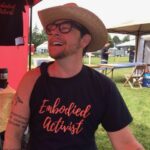
Dr. Liam Snowdon
Kimberly Ann Johnson
Dr. Ellen Heed
Keli Garza
Kris Gonzalez, L.Ac.
"Coocky" Tassanee Boonsom
Dr. Betty Martin
About the Show
We explore the restoration of pleasure, the reclamation of sexual sovereignty, and the realization of our organic sexual wholeness. We engage with leading somatic therapists, sexologists & sexological bodyworkers, and holistic practitioners worldwide who provide practical wisdom from hands-on experiences of working with clients and their embodied sexuality. We invite a deep listening to the organic nature of the body, its sexual essence, and the bounty of wisdom embodied in its life force.
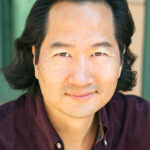
Rahi Chun
Creator: Somatic Sexual Wholeness
Rahi is fascinated by the intersection of sexuality, psychology, spirituality and their authentic embodiment. Based in Los Angeles, he is an avid traveler and loves exploring cultures, practices of embodiment, and healing modalities around the world.
